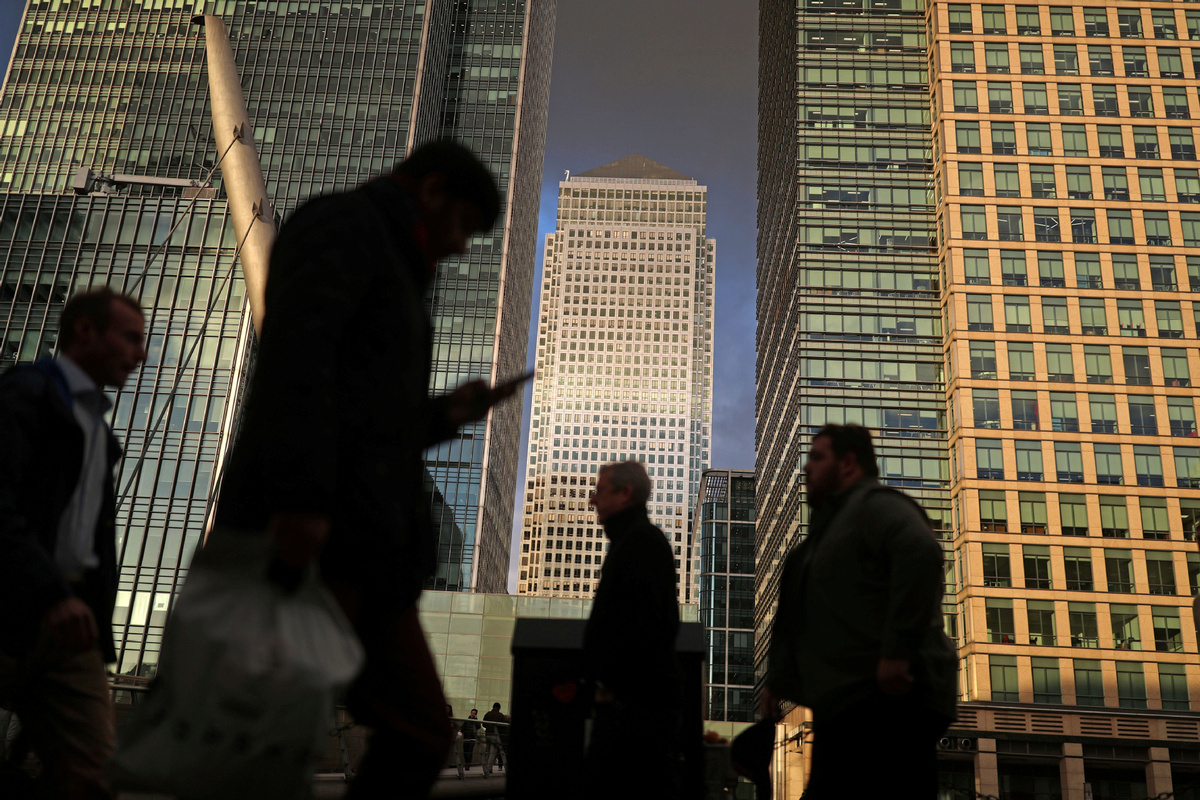
People walk through the Canary Wharf financial district of London, Dec 7, 2018. (Photo: Agencies)
The catastrophic impact of the novel coronavirus pandemic on business was made plain on Wednesday when employers in the United Kingdom announced 11,000 job cuts in retailing and aviation-two of the sectors hardest hit by the lockdown.
Department store owner John Lewis confirmed it will close some outlets and an unconfirmed number of jobs in an effort to slash costs, while Arcadia and Harrods said they planned to cut as many as 1,180 jobs between them.
Train station and airport food retailer SSP Group says up to 5,000 jobs could go across its UK outlets and head office, as it struggles with the reduction in passenger travel.
Aerospace giant Airbus has said it plans to cut 15,000 jobs worldwide as it deals with the effects of the virus crisis. It will cut 1,700 jobs in the UK, along with thousands more in Germany, Spain and elsewhere. Budget airline Easyjet said it would cut nearly 2,000 flight and cabin crew jobs in the UK.
The Unite union said the Airbus announcement was "another act of industrial vandalism" against the UK aerospace sector.
The company warned in April that it was "bleeding cash at an unprecedented speed" as it struggled with the impact of the pandemic.
It said on Tuesday that production had dropped by 40 percent in recent months, and that it did not expect air traffic to get back to pre-pandemic levels until 2023 at the earliest.
Doctors in the UK have demanded the government provide vital data on spikes of novel coronavirus cases more quickly to local authorities to help them better manage any outbreaks in their areas.
There has been criticism about the length of time it took to get testing data to officials in the city of Leicester, which has been forced to extend lockdown measures after a surge of cases locally.
During prime minister's questions in Parliament on Wednesday, Labour leader Keir Starmer said officials in Leicester had only received full figures on Thursday, and there had been a "lost week whilst the virus was spreading".
Prime Minister Boris Johnson said the government had first acted on what was happening in the city on June 8, but "unfortunately it did not prove possible to get the results seen elsewhere".
The British Medical Association, the union representing doctors in the UK, said ministers needed to be more open and transparent with COVID-19 data and about how regional spikes in infections will be managed in the future.
In Sweden, the government has appointed a commission to investigate the country's handling of the novel coronavirus pandemic amid mounting criticism of its liberal approach and higher death rate compared with its Nordic neighbors.
The commission will evaluate the measures taken by the government, the authorities, the health regions and local councils to prevent the spread of the virus and the impact of its evolution.
Swedish Prime Minister Stefan Lofven said at a news briefing that the ability of the entire community to come together is one of Sweden's "great strengths".
"But at the same time this crisis has put a spotlight on shortfalls in our society," he said.
Sweden, which has a population of 10.3 million, has experienced a slight spike in COVID-19 cases over recent weeks, though the Public Health Agency argues this could be due to a significant rise in the number of tests being carried out.
As of Tuesday, the country had registered a total of 68,451 confirmed cases and 5,333 deaths.
Elsewhere in Europe, in the Czech Republic, a party has been held to give the novel coronavirus a "symbolic farewell". Thousands of guests sat at a 500-meter-long table on the Charles Bridge in Prague on Tuesday sharing food and drinks they had brought from home.
There have been fewer than 12,000 infections in the Czech Republic, a country of 10 million. About 350 people have died. The event's organizer said the "symbolic" celebration was possible due to a lack of tourists.
In the UK, cultural institutions are emerging from months of lockdown, and London's National Gallery will be the country's first major museum to reopen on Wednesday after the longest closure in its 196-year history.
Curators at the museum have moved popular pictures to larger rooms, to accommodate the social-distancing measures, and all visits will have to be booked online to help manage numbers.
Other major institutions to reopen next week include the Royal Academy and the Barbican Art Gallery.
The British Museum has not yet set a date for reopening, while the Tate is set to reopen its galleries on July 27.


